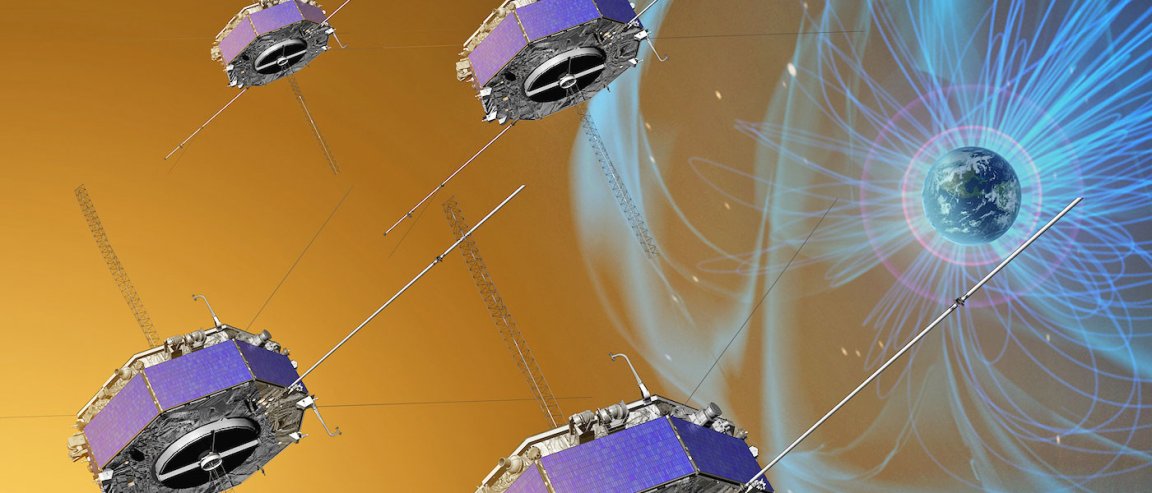
Magnetic Reconnection
Back in 2015, NASA launched four spacecraft known as Magnetospheric Multiscale (MMS). Their job was to study the magnetic fields around Earth to gain information on how they connect and disconnect. Now, the mission is getting its first results, with initial observations having been published in the journal Science.
To break this down a bit, the mission was sent to space to find areas where magnetic reconnection occurs. This is a process that converts magnetic energy to kinetic or thermal energy. It occurs during solar flares, coronal mass ejections, and when solar winds interact with the Earth’s magnetic field sans solar storm.
When two sets of magnetic fields connect, an explosive reaction occurs: As the magnetic fields realign and snap into a new formation, they send particles zooming off in jets. This is magnetic reconnection. And since solar winds have their own magnetic fields, when they reach Earth and hit the magnetosphere, magnetic reconnection occurs.
NASA sent up the satellites to witness this phenomenon. Before, all that could be seen was the particles that zoom off after the filed collide, much like seeing the debris flung out from a tornado, but we’ve never seen the storm itself.

Space Weather
By having the MMS mission, NASA was able to observe one of the fundamental forces of nature. On Oct. 16, 2015, the spacecraft traveled straight through a magnetic reconnection event. In only a few seconds, the total of 100 sensors collected thousands of observations, including how the magnetic and electric fields changed, as well as the speeds and direction of the various charged particles.
But why collect the information?
Well, such information helps map out the details of our space environment — crucial information as we journey ever farther beyond our home planet. The phenomenon also affects the “space weather” found in the Earth’s magnetosphere. Better understanding of the phenomenon allows NASA to improve its predictions for magnetic reconnection and, as a result, better control its equipment in space.